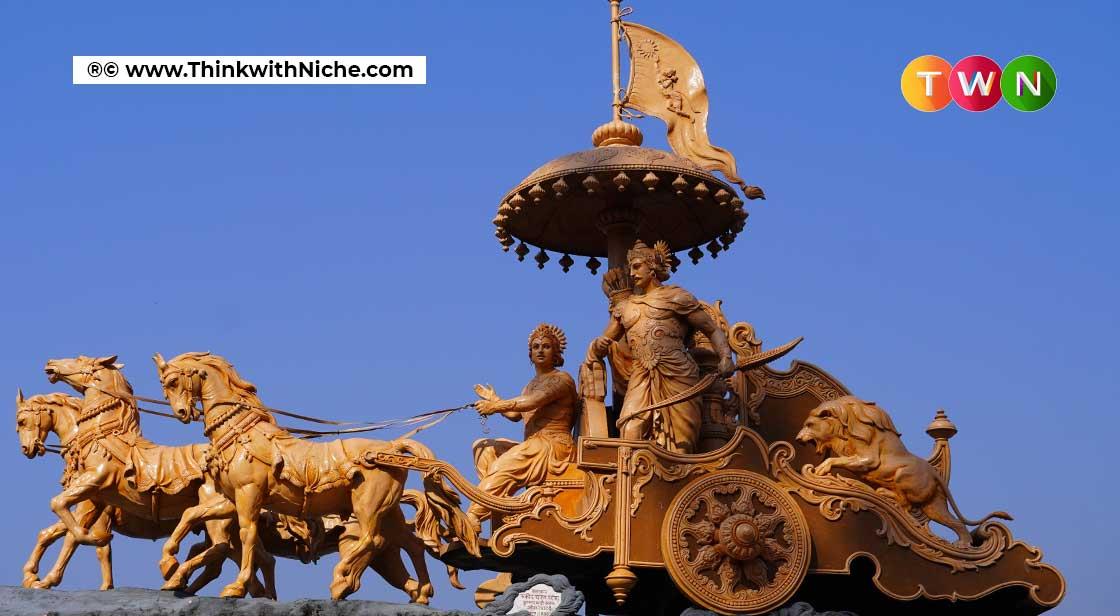5 Key Entrepreneurial Lessons From Mahabharat

Blog Post
You must develop the ability to anticipate the effects of your actions. In everyday work, you are bound to make decisions that will influence you, your organization, and everyone involved directly or indirectly. A 360-degree assessment of the situation and its potential outcomes would undoubtedly aid in making better judgments. Own up to your errors and accept responsibility for your actions.#ThinkWithNiche
Some people are surprised that we can still learn life lessons from an ancient epic that has little or no relevance in today's fast-paced world. Mahabharat can teach us the following life lessons:
Playing Your Strengths-The road to entrepreneurship might be a lonely one. Many things must be overcome, including the judgemental and self-critical latent devil that dwells within you and rears its head anytime you are about to do something new. Develop a skill that comes naturally to you and work on developing something that fascinates you. Make the most of your abilities. This may not ensure commercial success, but it does provide a memorable experience.
The Pandavas in Mahabharat focused on their personal interests and abilities. Arjuna, for example, never got tired of shooting an arrow, while Bheema was never afraid to battle the enemies. Yudhisthir constantly followed his inner compass and lived a life of honesty. As a result, he was bestowed with a plethora of boons that enabled him to sail through any storm.
Understanding People And Their Intentions- You don't have to be a psychic or a mind reader to figure out what people are thinking. However, it is critical to spend time with people you intend to work with in order to gain a better understanding of their character, intents, ambitions, and attitude. Because your core team will be the backbone of your company, it should be carefully selected.
Yudhisthir was blinded by his regard and love for Vidhur and Dhritrashtra (his uncles) in Mahabharat, and did not recognize his cousins' evil intentions when they invited him to a party. This laid the seeds of a war that would wipe an entire clan off the face of the earth.
Leadership And Team Management- A true leader motivates his employees to work together toward a common objective. True business success is only possible if and when the people who work for it are pleased and motivated.
The Pandavas had a very systematic approach to their squad; they divided it up into groups based on individual strengths and objectives. Several of their allies had animosity for the Kauravas, which was wisely factored into the overall war strategy. There was a definite line of communication, roles, and responsibilities running from the master strategist Krishna to the ethical Yudhisthir, smart Arjun, and powerful Bheem. Everyone's participation was motivated by a common objective, vision, and driving force. One of the most important components of their plan was this.
Learning And Acquiring Skills- Entrepreneurs are learners for the rest of their lives. By assuming you know everything, you're setting yourself up for failure. Entrepreneurship, unlike traditional learning in school or college, imparts real-life principles. You may be brainstorming the latest tech breakthroughs with your programmers, sketching the yearly marketing plan with your marketing head, and speaking with your HR staff about recruiting the right people all in the same day. If you need to keep your business going, be willing to learn a new talent.
During their exile, the Pandavas dedicated all of their time and energy to learning and developing new skills, which helped them win the war.
Respecting the mentors- Mentors are angels in disguise and, in my opinion, "professional gurus" who can help you achieve greatness. Mentors will always look out for your professional and company development. Listening to their counsel and putting their ideas into practice will help you avoid a lot of business blunders.
Duryodhana would insult his instructors and disregard their instructions on countless occasions, whereas the Pandavas, despite fighting against the gurus, would seek their blessings and guidance. Despite battling against the Pandavas, Bhishma and Drona were willing to guide their mentees, demonstrating that mentors are constantly looking out for the best interests of their charges.
Conclusion- Finally, as an entrepreneur, it is critical to acknowledge the realities of life as we embark on our entrepreneurial journey. No matter how successful you become, be grounded and humble.
You May Like
EDITOR’S CHOICE












